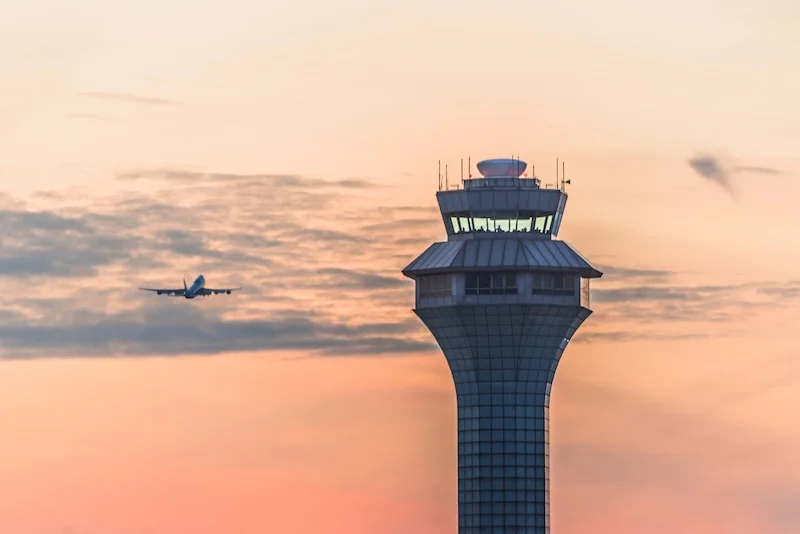The Shutdown Is Pushing U.S. Air Safety Workers to the Breaking Point

Federal aviation employees insist that flying remains safe despite mounting strain on air traffic controllers and transportation security staff—but passengers should brace for increasing airport delays and disruptions as the government shutdown drags on.
It’s been a punishing year for America’s aviation safety workforce. January brought the worst U.S. commercial airline accident in decades, followed by unexpected layoffs, critical staffing shortages, and technology failures at some of the country’s busiest airports. Now, a renewed political stalemate in Congress has triggered a government shutdown, pushing already overworked federal employees to their limits.
Even “essential” personnel—such as air traffic controllers and Transportation Security Administration (TSA) officers—are working without pay. They’re managing the same daily pressures as before, now compounded by financial insecurity and reduced operational support. One Federal Aviation Administration (FAA) engineer described feeling overwhelmed: “The system is still safe, but the shutdown slows everything down. Repairs take longer because one person can only solve so many problems at once.” Before the shutdown, the FAA had already announced plans to furlough more than 11,000 workers who maintain the infrastructure and technology behind U.S. airspace management.
Veteran aviation employees say this shutdown—the fourth in two decades—feels more unsettling than past ones. Missed paychecks, expected to hit within days, are adding to the anxiety. “They don’t take IOUs at grocery stores or gas stations,” said Johnny Jones, president of the American Federation of Government Employees Local 1040 and a TSA officer at Dallas Fort Worth International Airport. “People are confused, concerned, and tired of being treated like bargaining chips.”
Without their furloughed colleagues, many projects have stalled, and remaining staff fear further cuts could follow. “We feel undervalued and unappreciated,” said an employee from the Air Traffic Organization, which oversees the National Airspace System. “We’re keeping it safe, but the strain is getting worse.”
Experts warn that the longer the shutdown continues, the more passengers will feel its impact. Michael McCormick, former FAA manager and current professor at Embry-Riddle Aeronautical University, said that although aviation safety won’t be compromised, travelers should expect growing delays. “Controllers make thousands of decisions every day,” he explained. “They know when they’re not fit to work—if they’re tired or unwell—but this environment makes it harder to stay at their best.”
Workers also worry about political retaliation. Some fear that the shutdown could be used to justify mass firings or to weaken federal unions, following recent attempts to roll back collective bargaining rights. “It feels like they want us to be afraid,” said one FAA employee. “I’m angry—angry that they’re using us as hostages for politics.”
The FAA insists that safety remains its top priority. “When staffing constraints arise, the FAA will slow air traffic at affected airports to ensure safety,” said spokesperson Hannah Walden, adding that Transportation Secretary Sean Duffy confirmed air traffic controllers reporting to work will continue to be paid retroactively once funding resumes.
Still, air traffic and security staff say the toll is growing heavier with each day of uncertainty. “We’re sick and tired of being political pawns for Washington,” said Jones. “We just want to do our jobs and keep people safe.”
Related News: https://airguide.info/?s=FAA, https://airguide.info/category/air-travel-business/travel-health-security/
Sources: AirGuide Business airguide.info, bing.com, wired.com
